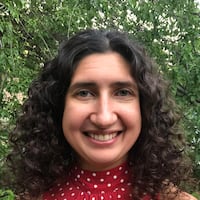Before the coronavirus pandemic, Teandra Storey, a social studies teacher at Grayson High, never paid attention to school board meetings. But last month, she stood at the podium and asked Gwinnett County Public Schools to delay the return to in-person instruction after winter break.
“What are we trying to prove by not making common-sense adjustments as this pandemic continues to rear its ugly face?” Storey asked the board and Superintendent J. Alvin Wilbanks.
In response to pandemic concerns and the upheaval over social justice that swept metro Atlanta and the nation last year, more Gwinnett teachers are publicly criticizing the school district — and some want explicit protections against retaliation for doing so.
Only a handful of people addressed the school board at meetings before the pandemic reached Georgia, and only some of those were employees. But since June, at least 20 speakers have come before the board nearly every month, many of them employees denouncing district practices. Teachers rallied over the summer to oppose in-person classes and demand more inclusive practices in the diverse school district. Some said they became more outspoken last year in campus meetings and on social media.
Many are social studies teachers who say they’re practicing the same civic engagement they’re charged with instilling in students.
Storey, who has three children in the school district, said she followed the lead of other teachers who began airing their complaints last year in public.
“OK, wait, they didn’t die,” she remembered thinking, with a laugh. “They still have a job. ...It’s one of those things that we’re talking life and death. I’m going to speak up.”
School district policy prohibits board members and administrators from retaliating in any way against employees who participate in the official complaint process. Brian Westlake, a social studies teacher at Berkmar High School who is active in the Gwinnett County Association of Educators, said he’d like the school district to work with the union and other employees to craft procedures that give employees more confidence in their protections.
Westlake rarely spoke at board meetings until last summer but has addressed the board and superintendent every month since July, saying the school district is run too much like a corporation and reminding board members they could be voted out.
At the November meeting, Wilbanks described Westlake and other speakers as “disrespectful” and “unprofessional.”
“If you are so unhappy with GCPS, we could accept your resignation at any time,” Wilbanks said, prompting gasps from the crowd and a parade of speakers the following month who accused Wilbanks of threatening and intimidating teachers.
Sloan Roach, school district spokeswoman, said Wilbanks was only telling Westlake to follow board policy by speaking civilly and respectfully, but Westlake and other teachers argued all the employees at board meetings have done so.
Some teachers who signed up to speak said they felt intimidated by assistant superintendents who called them before the meetings. Roach said the administrators are trying to answer questions or help employees with their concerns but not discourage them from addressing the board.
Anthony Downer, a world history teacher at Peachtree Ridge High School and co-chair of Gwinnett Educators for Equity and Justice, said supervisors have told him to take complaints up the chain of command. Downer said he reserved the right to to comment publicly about community-wide issues.
“A lot of teachers don’t know their rights and they don’t know that they’re entitled to speak out,” he said.
About the Author
Keep Reading
The Latest
Featured



